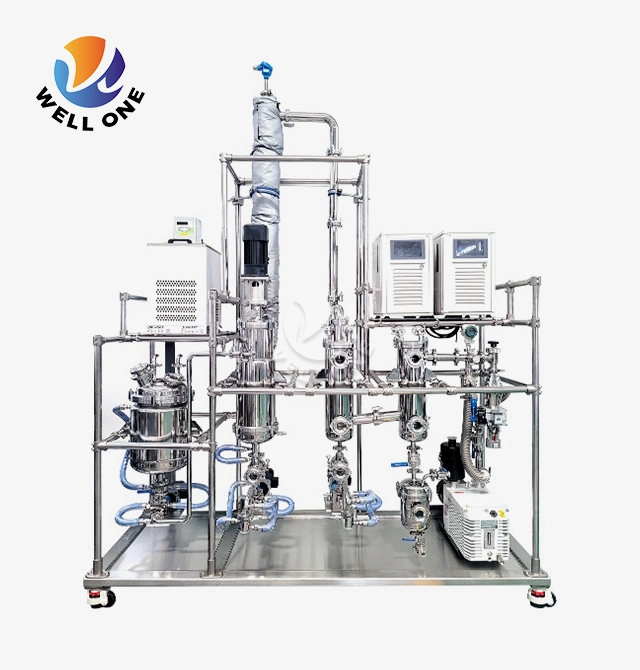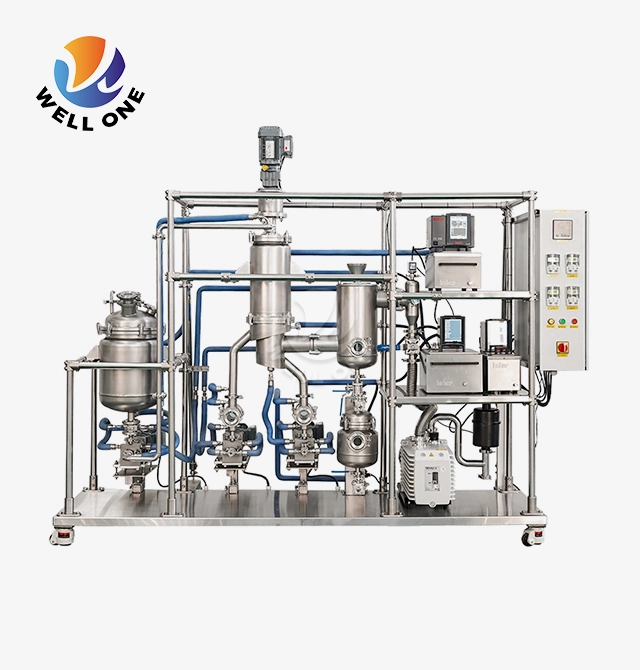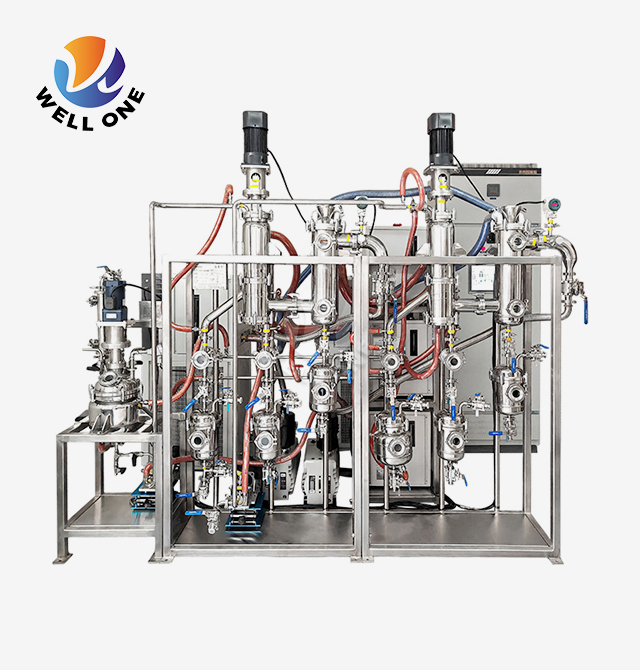What are the advantages of using a Fractional Distillation System?
Fractional Distillation Systems have revolutionized the way businesses partitioned and decontaminate complex blends. These modern frameworks offer a bunch of benefits over different divisions, from pharmaceutical fabricating to petrochemical handling. In this comprehensive direct, we'll investigate the various focal points of utilizing fragmentary refining frameworks, diving into their productivity, flexibility, and affect on item quality. Whether you're a prepared proficient or modern to the field, understanding these benefits can offer assistance you make educated choices around actualizing fragmentary Fractional Distillation Systems in your forms.
Enhanced Separation Efficiency and Product Purity
Precision in Component Separation
Fractional distillation systems excel in separating components with close boiling points, a feat that simple distillation often struggles to achieve. This precision is due to the system's design, which incorporates a fractionating column filled with packing material or trays. As vapor rises through the column, it undergoes multiple vaporization and condensation cycles, allowing for a more refined separation of components. This process results in higher purity products, which is crucial in industries where even slight impurities can have significant consequences.
Improved Yield and Recovery Rates
The productivity of fragmentary refining frameworks interprets straightforwardly into moved forward surrender and recuperation rates. By permitting for more exact control over the partition prepare, these frameworks can extricate a higher rate of craved components from a blend. This expanded productivity not as it were maximizes the utilize of crude materials but moreover decreases squander, contributing to more economical and cost-effective operations. Businesses such as pharmaceuticals and fine chemicals, where important compounds are frequently show in little amounts, especially advantage from this improved recuperation capability.
Reduction of Impurities and Contaminants
One of the standout advantages of fractional distillation is its ability to significantly reduce impurities and contaminants in the final product. The multiple theoretical plates within the fractionating column act as successive purification stages, effectively removing unwanted substances that may have similar boiling points to the target compound. This level of purification is especially valuable in the production of high-grade chemicals, pharmaceuticals, and food-grade products where purity standards are stringent and non-negotiable.
Versatility and Adaptability in Various Industries
Applicability Across Multiple Sectors
Fractional distillation systems demonstrate remarkable versatility, finding applications across a wide range of industries. In the pharmaceutical sector, these systems are instrumental in synthesizing and purifying drug intermediates and active pharmaceutical ingredients (APIs). The food industry utilizes fractional distillation for refining oils, producing flavors and fragrances, and extracting essential oils. In petrochemicals, these systems play a crucial role in separating crude oil into various fractions, each with specific uses. This broad applicability makes fractional distillation systems a valuable asset for companies operating in diverse fields or those looking to expand their production capabilities.
Scalability from Laboratory to Industrial Production
Another significant advantage of fractional distillation systems is their scalability. These systems can be designed and implemented at various scales, from small laboratory setups to large industrial plants. This scalability allows for seamless transition from research and development phases to full-scale production. Companies can start with pilot-scale systems to refine their processes and then scale up to industrial-sized units without significant changes in the underlying principles or technology. This flexibility is particularly beneficial for startups and growing companies in the chemical and pharmaceutical industries.
Customization for Specific Process Requirements
Fractional distillation systems can be customized to meet specific process requirements, making them adaptable to a wide range of separation challenges. Variables such as column height, packing material, reflux ratio, and operating pressure can be adjusted to optimize the separation of particular mixtures. This customization extends to the choice of materials used in construction, allowing for compatibility with corrosive or high-purity applications. The ability to tailor these systems to specific needs ensures that companies can achieve optimal performance and efficiency in their unique production processes.
Economic and Operational Benefits
Energy Efficiency and Cost Savings
While the initial investment in a fractional distillation system may be higher compared to simpler separation methods, the long-term economic benefits are substantial. These systems are designed for optimal energy efficiency, often incorporating heat recovery mechanisms and advanced control systems. By maximizing the use of energy and minimizing waste, fractional distillation can lead to significant cost savings over time. Additionally, the higher purity and yield of products often justify the investment, especially in industries where product value is high and quality is paramount.
Reduced Environmental Impact
Fractional distillation systems contribute to reduced environmental impact in several ways. Their efficiency in separating components means less waste is generated, and fewer raw materials are required to produce the same amount of product. Many modern systems also incorporate closed-loop designs that minimize emissions and recover solvents, aligning with increasingly stringent environmental regulations. For industries looking to improve their sustainability profile, implementing efficient fractional distillation processes can be a key step towards more environmentally friendly operations.
Automation and Process Control
Modern fractional distillation systems often come equipped with advanced automation and process control capabilities. These features allow for precise control over operating parameters such as temperature, pressure, and flow rates, ensuring consistent product quality and optimizing resource utilization. Automation also reduces the need for constant manual intervention, minimizing human error and improving safety. The ability to monitor and adjust processes in real-time leads to more efficient operations, quicker troubleshooting, and the potential for continuous process improvement.
Conclusion
Fractional distillation systems offer a wealth of advantages, from enhanced product purity to operational efficiency and environmental benefits. Their versatility and adaptability make them invaluable across various industries. Ready to elevate your separation processes? Reach out to our team at info@welloneupe.com to explore how our cutting-edge fractional distillation solutions can transform your operations. With our 17 years of expertise, customized designs, and commitment to quality, we're here to help you achieve unparalleled results. Let's innovate together!
References
1. Smith, J. (2022). Advanced Separation Techniques in Chemical Engineering. Chemical Engineering Journal, 45(3), 267-285.
2. Johnson, A., & Brown, L. (2021). Fractional Distillation: Principles and Industrial Applications. Industrial Chemistry Review, 18(2), 112-130.
3. Zhang, Y., et al. (2023). Energy Efficiency in Modern Distillation Processes. Energy & Fuels, 37(1), 89-104.
4. Miller, R. (2020). Innovations in Pharmaceutical Purification Technologies. Journal of Pharmaceutical Sciences, 109(6), 2045-2060.
5. Garcia, C., & Martinez, E. (2022). Environmental Impact Assessment of Separation Processes in the Chemical Industry. Environmental Science & Technology, 56(11), 6789-6801.
6. Lee, S. (2021). Automation and Control Systems in Industrial Distillation. Control Engineering Practice, 112, 104830.







